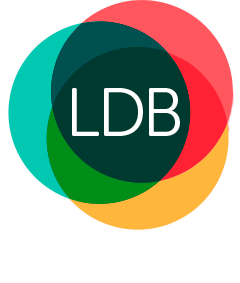Tax for SMSF members: What can I claim?
May 28, 2018

As a member (and trustee) of your self-managed superannuation fund (SMSF) it’s important to understand that your super fund is a separate legal entity.
When it comes to tax time there may be some superannuation-related items that you can claim as a personal tax deduction, and other items that can be claimed by your SMSF.
Here’s a quick summary of what can be claimed by you and your SMSF.
Allowable deductions for SMSF members
Subject to certain age restrictions, the Australian Tax Office (ATO) allows individuals to claim:
- A personal tax deduction for concessional contributions up to the concessional contribution cap of $25,000 per year. The cap includes employer super guarantee and salary sacrifice contributions that may already have been made.
Allowable deductions for SMSFs
As a general principle, your SMSF can claim deductions for expenses incurred in earning taxable income provided the expenditure complies with the fund’s investment strategy, trust deed and superannuation laws.
These include:
- Expenses in relation to the preparation of financial statements, member statements and annual returns
- Audit
- ASIC fees
- Investment related expenses, such as management fees
- Portfolio administration software
- Rental property expenses, for example:
- Agent management fees
- Council and water rates
- Insurance
- Repairs and maintenance
Note that, as of 1 July 2017, SMSFs can no longer claim a deduction for travel expenses related to a residential investment property
- Retainers paid to investment advisers
- The cost of investment advice related to changing an existing investment mix provided it does not constitute a new financial plan
- Legal expenses, including amendments to the trust deed in order to maintain a deed compliant with current legislation
- Premiums for death, total and permanent disability, terminal illness and income protection insurance. The amount allowed as a deduction is reduced for policies limited to own occupation
- Valuation and storage costs for artwork and collectibles
- Relevant subscriptions.
Exempt current pension income
The income earned on assets that support retirement phase income streams is referred to as exempt current pension income (ECPI) and is exempt from income tax.
The treatment of deductions becomes more complicated if the fund earns exempt current pension income (ECPI), as a full or partial deduction may be allowed depending on the type of deduction.
Generally, once the SMSF is 100% exempt, all deductions also become non-deductible however, there are certain deductions that remain deductible and certain circumstances where partial deductions are still allowed.
Additional and unusual claims for SMSFs
If a member died prior to 1 July 2017, and if the trust deed allows, an SMSF may be able to claim a deduction for an “anti-detriment” payment.
This represents a refund of tax paid by the fund while the benefit was accumulating.
Depending on the specific circumstances, anti-detriment payments can provide SMSFs with a large tax deduction that can be carried forward and offset against tax liabilities in future years.
Anti-detriment payments are only available if a member has died before 1 July 2017, and the death benefit paid prior to 1 July 2019.
Find a trusted accountant to do your SMSF tax
The superannuation environment is complex and constantly changing. It’s easy to make mistakes, many of which can prove costly.
LDB Group are experts in helping superannuation fund members and SMSF trustees identify all their legitimate tax deductions and preparing both individual and SMSF tax returns.
Take the weight off your shoulders – phone LDB on (03) 9875 2900 or fill in the contact form below to find out how we can assist you with your SMSF tax issues.
